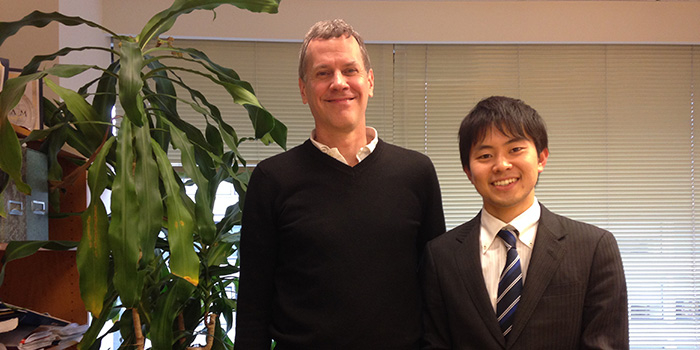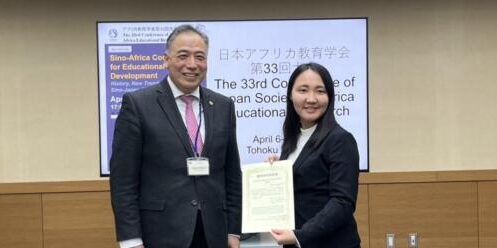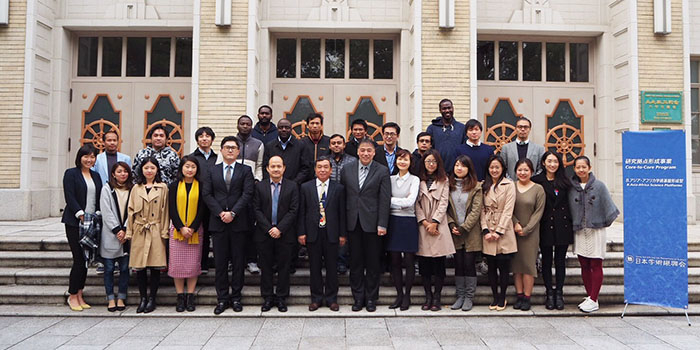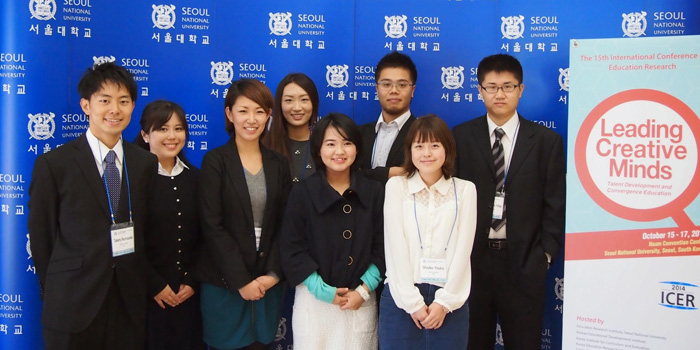In March 2015, I participated in a two-week field study held in Washington DC, USA under the supervision of Prof. Keiichi Ogawa. The field exercise lasted from 8th to 20th and was in two phases. The first phase involved attending the Comparative International Education Society (CIES 2015) and the second phase involved visiting the World Bank, FHI360 and George Washington University to attend pre-arranged meetings with international education development experts and graduate students. The meetings were arranged by Prof. Ogawa and myself, and involved discussing about education development, research and career development.
 While the week of CIES2015, I attended several sessions in and out of the conference. In the conference, I learnt about education policy, practice and research focusing on issue of teachers. In addition, I attended a session titled; “Fifty years of comparative studies of educational returns: a panel in honor of Dr. Martin Carnoy and Dr. George Psacharopoulos”. This panel invited two distinguished researchers on rates of return in education: Dr. Carnoy and Dr. Psacharopoulos. I also attended a seminar held on Research for Development (R4D), titled; “Pricing the right to education: The cost of reaching new targets by 2030”. It showed estimated cost to achieve post-2015 education agenda, such as universal pre-primary, primary and lower secondary education of good quality in the next 15 years.
While the week of CIES2015, I attended several sessions in and out of the conference. In the conference, I learnt about education policy, practice and research focusing on issue of teachers. In addition, I attended a session titled; “Fifty years of comparative studies of educational returns: a panel in honor of Dr. Martin Carnoy and Dr. George Psacharopoulos”. This panel invited two distinguished researchers on rates of return in education: Dr. Carnoy and Dr. Psacharopoulos. I also attended a seminar held on Research for Development (R4D), titled; “Pricing the right to education: The cost of reaching new targets by 2030”. It showed estimated cost to achieve post-2015 education agenda, such as universal pre-primary, primary and lower secondary education of good quality in the next 15 years.
 In the latter half of the field study, I attended meetings with World Bank Officers. I got a lot of valuable information about my research area and career development, through the meeting with Dr. Harry Anthony Patrinos, Dr. Luis Benveniste, Dr. Christophe Rockmore, Dr. Halsey Rogers, and Japanese experts: Dr. Tomomi Miyajima, Dr. Susumu Yoshida, Mr. Hiroshi Saeki, Dr. Shinya Takamatsu and Dr. Nobuyuki Tanaka. Especially meeting with Dr. Rockmore, who is working as an Economist at Department of Human Development in Africa Region, and Dr. Halsey Rogers, who is working as a Lead Economist at Human Development Network, were both fruitful for me. Dr. Rockmore is one of the persons in charge of Service Delivery Indicators (SDI). This survey is researching about teacher absenteeism, which is my research topic focusing on primary education in Uganda. On the other hand, Dr. Halsey Rogers has done a lot of research on issue of teachers, including absenteeism. Both of them gave me a lot of advice about research and career development.
In the latter half of the field study, I attended meetings with World Bank Officers. I got a lot of valuable information about my research area and career development, through the meeting with Dr. Harry Anthony Patrinos, Dr. Luis Benveniste, Dr. Christophe Rockmore, Dr. Halsey Rogers, and Japanese experts: Dr. Tomomi Miyajima, Dr. Susumu Yoshida, Mr. Hiroshi Saeki, Dr. Shinya Takamatsu and Dr. Nobuyuki Tanaka. Especially meeting with Dr. Rockmore, who is working as an Economist at Department of Human Development in Africa Region, and Dr. Halsey Rogers, who is working as a Lead Economist at Human Development Network, were both fruitful for me. Dr. Rockmore is one of the persons in charge of Service Delivery Indicators (SDI). This survey is researching about teacher absenteeism, which is my research topic focusing on primary education in Uganda. On the other hand, Dr. Halsey Rogers has done a lot of research on issue of teachers, including absenteeism. Both of them gave me a lot of advice about research and career development.
Through the study, I learned three things: first, what to do for career development; second, what is the World Bank and what officers do; third, how to make progress in the research. In particular, to get the real feel of the World Bank and their work through meetings was highly encouraging for me to develop myself.
I’m very grateful to my academic advisor, Professor Keiichi Ogawa, for giving me this excellent opportunity. I would also like to send gratitude to Ogawa-seminar alumni in Washington, D.C.; Dr. Shinsaku Nomura, Dr. Mari Shojo, Dr. Nobuyuki Tanaka and Ms. Miho Nomura, for their kind support.
Takeru Numasawa
Master’s student
Related








